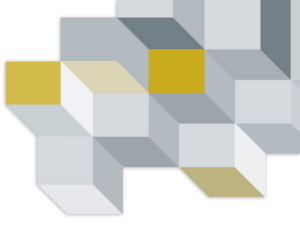What does the buzzword "artificial intelligence" actually mean? And what impact do machine learning and neural networks have?
Good science journalism has the opportunity to update outdated ideas and provide guidance on new and future risks and opportunities. At the same time, machine learning applications are particularly useful for researching large amounts of data, for visualizations or for pattern recognition. All of this can help journalists to better navigate the digitalized (scientific) world and produce higher quality science journalism. The RHET AI Center offers the "Cyber Valley Journalist-in-Residence Program" to meet both of these challenges.
What do we offer?
Journalists are offered three to six months of paid time with creative freedom to research a self-chosen research question and implementation of own project ideas — if chosen in exchange with AI researchers of various disciplines. During their stay, Journalists-in-Residence not only have the opportunity to get to know the basics, possibilities and limitations of machine learning, computer vision and robotics. You can also build up your own network of researchers and various institutions that deal with AI and its impact on science, business and society.
With the JIR-Program, you get:
- Introduction to the basics of machine learning, computer vision and robotics
- Opportunities to build your own network with researchers
- Insights into the Cyber Valley ecosystem
- Space for creativity and reflection on methods, tools and AI-supported journalism
- honored work contract
- Budget for own events (e.g. workshops, expert talks, trips)
- Office and accommodation costs are covered
How can you apply?
Apply until April 24th, 2025 with a cover letter, CV and an idea paper.
Interested media representatives can apply with a cover letter, a CV and an idea paper via email to the Janis-Anne Fischer (Public Engagement Manager, Cyber Valley). The two-page idea paper should illustrate which journalistic challenge is to be solved during the stay with regard to the topic of AI or with the help of AI. Please also indicate the period during which you would like to take up the offer. The call for applications is expressly aimed at permanent and freelance journalists. The renumeration via a contract for work is based on TV‑L E13. The stay can be completed part-time. The selection decision will be made by a jury.
Project partners
The program is funded by the Volkswagen Foundation through the Center for Rhetorical Science Communication on Artificial Intelligence (RHET AI).


Cyber Valley is Europe's leading center of excellence in modern AI and robotics. As an ambassador for entrepreneurship Cyber Valley's mission is to strengthen the research, development and application of intelligent systems. With a focus on the ethical and societal aspects of AI Cyber Valley promotes dialog between society and AI researchers. Cyber Valley strives for a future in which the full potential of intelligent systems is used for the common good.
The Tübingen Center for Rhetorical Science Communication Research on Artificial Intelligence (RHET AI) examines discourses on artificial intelligence in five interdisciplinary research units and promotes dialog and society-oriented science communication with regional and national public engagement formats. It is funded by the Volkswagen Foundation as part of the "Science Communication cubed Three" initiative.






